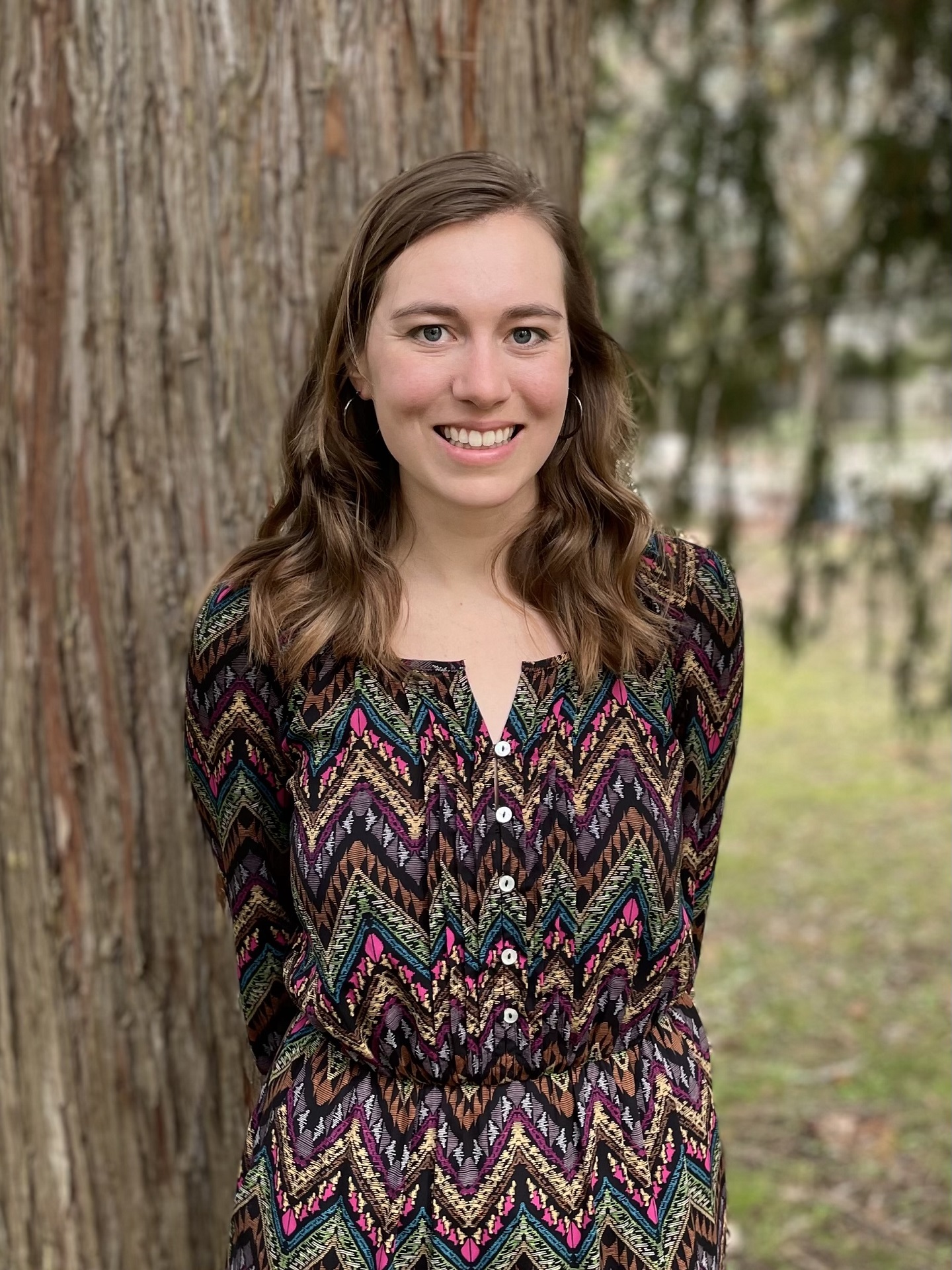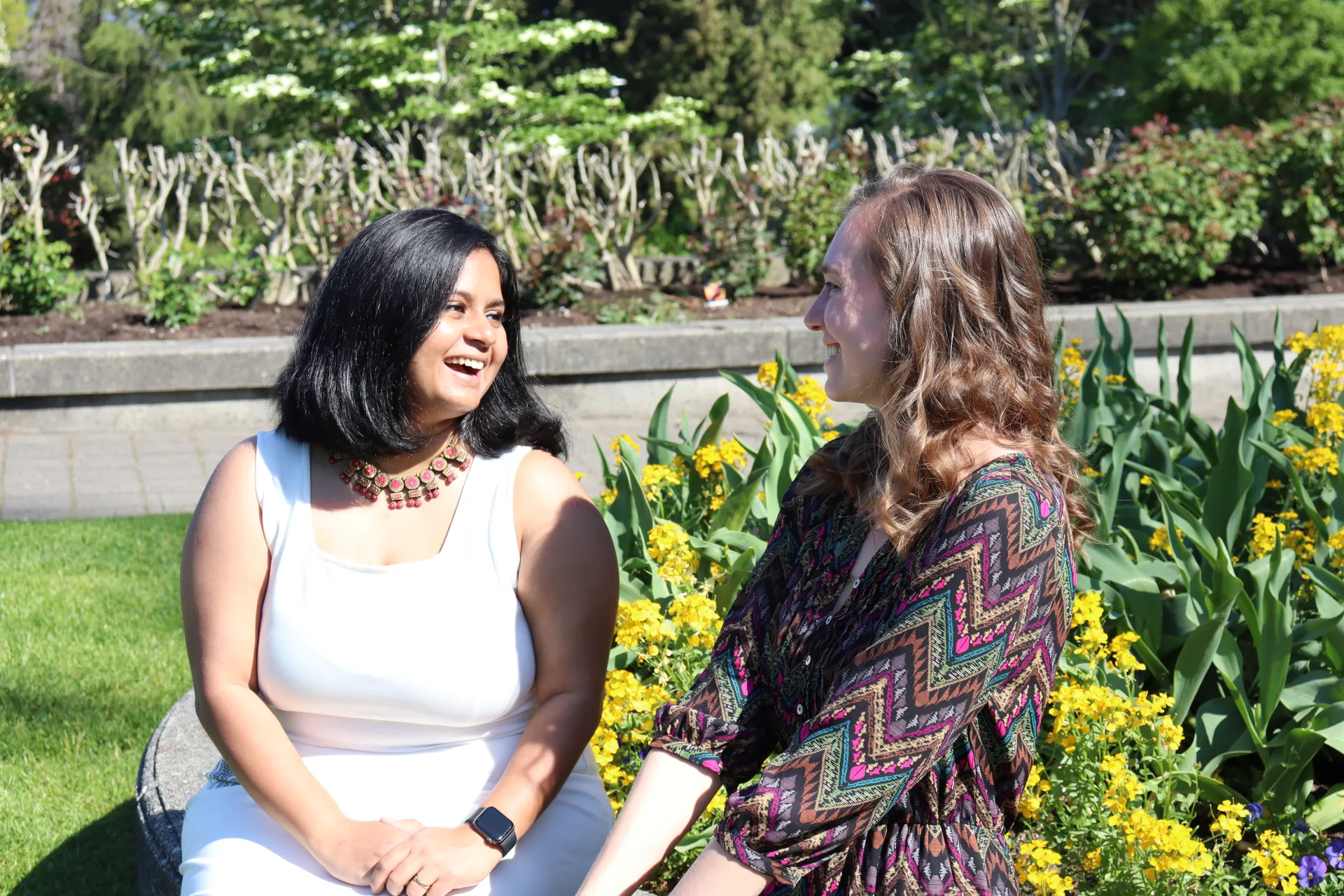
One of SCARP's fondest honours is to celebrate when a student is recognised for extraordinary insight and given the resources to engage further in their groundbreaking work.
We are delighted now to announce that two of our PhD students, Madison Lore and Meghna Mohandas, have been recognised as Vanier Scholars this year!
What is the Vanier CGS program?
The Vanier Canada Graduate Scholarships program aims to attract and retain world-class doctoral students, by supporting students who demonstrate both leadership skills and a high standard of scholarly achievement in graduate studies in social sciences and humanities, natural sciences and engineering, and health.
The program considers three equally weighted selection criteria: Academic Excellence, Research Potential, and Leadership (potential and demonstrated ability.
The program was named after Major-General Georges P. Vanier, the first francophone Governor General of Canada, the Vanier Canada Graduate Scholarship (Vanier CGS) program.
On August 29, 2023, the Vanier Canada Graduate Scholarhips team released the following:
"The Hon. Randy Boissonnault, Minister of Employment, Workforce Development and Official Languages, today announced the recipients of the 166 Vanier Canada Graduate Scholarships.
Congratulations to the Vanier 2023 fellows, and best wishes for success in your doctoral research!"
Our recipients and their work
Madison Lore
Area of research: Urban and Regional Studies, Environmental Studies
"Easing the Path to Sustainable Transportation: Understanding an individual’s potential to switch away from a personal vehicle through machine learning."

A reliance on vehicle travel represents an unsustainable future both ecologically and economically. While advances in technology have led to lower emission vehicles, including electric and hybrid vehicles, reaching the desired goals of a net zero carbon world by 2050 will require a reduction in vehicle use altogether.
Pulling in work from physics, computer science, and psychology, Madison's research seeks to quantify an individual’s potential of switching transportation modes and use this to inform intervention strategies tailored to the people affected by the change.
Madison's Vanier-awarded work, in her words
In North America, cities are struggling to see major decreases in transportation emissions. While planners and activists alike may wish to encourage higher use of sustainable transportation options, often the barrier to switching away from a personal vehicle is a lacking alternative. Bike networks are poorly connected, transit service is too infrequent, or available options are too slow in comparison. Equipped with this knowledge, planners work to alleviate these issues and hope that as alternative transportation networks, such as the bike and transit network, are expanded, more people are able and willing to ditch their personal vehicles. However, despite increased access and effort to improve alternative options, vehicle dependance in North American cities has stagnated over the past 10 years, leading planners and researchers to ask: what else is at play in keeping people from switching to sustainable transportation modes?
My research seeks to understand how people navigate barriers to reducing personal vehicle dependance and what role cultural influences have on this decision. By utilizing the vast array or data available in both abstraction and direct quotations from people moving throughout their cities as well as sophisticated techniques offered by the latest advances in data science, this work will examine and quantify the tension between barriers that comprise access and culture, specifically focusing on two cities with varied vehicle dependance: Boston, MA and Phoenix, AZ. Results of this analysis hope to 1) identify areas to increase access to alternative transportation options in an equitable way while 2) highlighting the impact cultural relationships with transportation have on actual use even when alternative options are accessible.
I hope for this research to contribute to transportation planning by introducing a novel data fusion framework to quantify cultural effects in the mode switching potential of individuals and furthering the ethical use of large-scale data collections in urban mobility studies through the analysis of data gaps. For cities, I hope for this research to influence transportation solutions that combat vehicle emissions, inequitable access to transport, and continued sprawl by identifying areas for easy and hard improvements. And finally, for people, I hope for this research to positively impact urban citizens by easing the path from car dependence through solutions that meet people where they are while minimizing potential harm for all groups, especially those underrepresented in data.
Meghna Mohandas
Area of research: Urban and Regional Studies, Environmental Studies
"Private space as political ‘genderscape’: How social and political contexts shape the rental housing experiences of Indigenous migrant women in Bengaluru, India."

Meghna studies the rental housing experiences of Indigenous women from the Northeast Indian borderlands and Himalayan foothills who migrate to Bengaluru, India. For Indigenous migrant women who are employed as intimate economy workers, their private rental houses are spaces where they experience racial harassment, sexual violence, and increased surveillance by landlords and neighbours.
In addition to an asymmetric tenant-landlord relationship, hegemonic influence of Hindu nationalism has emboldened Hindu landlords and neighbours to perpetrate violence against people characterised as ‘threatening their culture’. Meghna seeks to analyse how socio-political contexts render ‘private’ rental houses of Indigenous migrant women as ‘genderscapes’.
Meghna's Vanier-awarded work, in her words
For migrant communities, rental housing is an important infrastructure to establish themselves in new cities (Naik, 2015). However, for Indigenous migrant women from the Northeast Indian borderlands and the Himalayan foothills employed as beauty parlour and spa (intimate economy) workers in metropolitan Indian cities, the ‘private’ spheres of their rental homes are ‘genderscapes’ (Datta, 2016), i.e., spaces where they are subjected to racial harassment, sexual violence, and increased surveillance by landlords and neighbours (Bhattacharyya & Pulla, 2020). Feminist literature has established that the public-private divide of spaces is an arbitrary one, as gendered violence transcends this boundary (Fluri & Piedalue, 2017). However, research on violence against women inside their homes has predominantly focused on experiences of domestic violence (Sokoloff & Dupont, 2005). For planners to build safer and more inclusive cities for Indigenous migrant women employed as intimate economy workers, an analysis is urgently needed of how sexualised and racialised violence inside the ‘private’ sphere of their rental houses is perpetuated by people who are not intimate partners. This is the knowledge gap I seek to address through my doctoral research.
Indigenous migrant women employed as intimate economy workers have been hyper-sexualised, advertised by employers as providing ‘Southeast Asian aesthetic labour’ and stereotyped as ‘loose’ and ‘sexually promiscuous’ by mainland Indians (Deori & Rajagopalan, 2018). Moral anxieties pertaining to their bodies have subjected them to ‘othering’ in urban India (Haokip, 2021). While this translates into racialised and sexualised violence in ‘public’ spaces such as streets (Puri, 2006) and their workplaces (McDuie-Ra, 2013), I focus specifically on how marginalisation manifests inside their rental houses. In addition to an asymmetric tenant-landlord relationship, hegemonic influence of Hindu nationalism has emboldened Hindu landlords and neighbours to perpetrate violence against people characterised as ‘threatening their culture’ (Das, 2006; Bernroider, 2018). I seek to analyse the role of this socio-political context in rendering ‘private’ rental houses of Indigenous migrant women as ‘genderscapes’. By establishing ‘private’ housing as a site of ‘othering’ through violence, I seek to carry forward the public-private critique (Sweet, 2016) and expand urban planning scholarship on marginalisation of minorities beyond the dominant context of ‘public’ spaces. I will pursue this research in Bengaluru, a metropolitan city that is one of the top six destinations for Indigenous migrant workers in India (The Hindu, 2021).

One thing that elevates the experience of winning is that we were both awarded the Vanier scholarship this year. We went through the application process together and constantly provided each other with feedback. Sharing your work with colleagues is a great way of working through scholarship applications.
See all 2023 awardees
Congratulations to both of our Vanier recipients. We can't wait to see where your journeys take you next.
- Spotlight